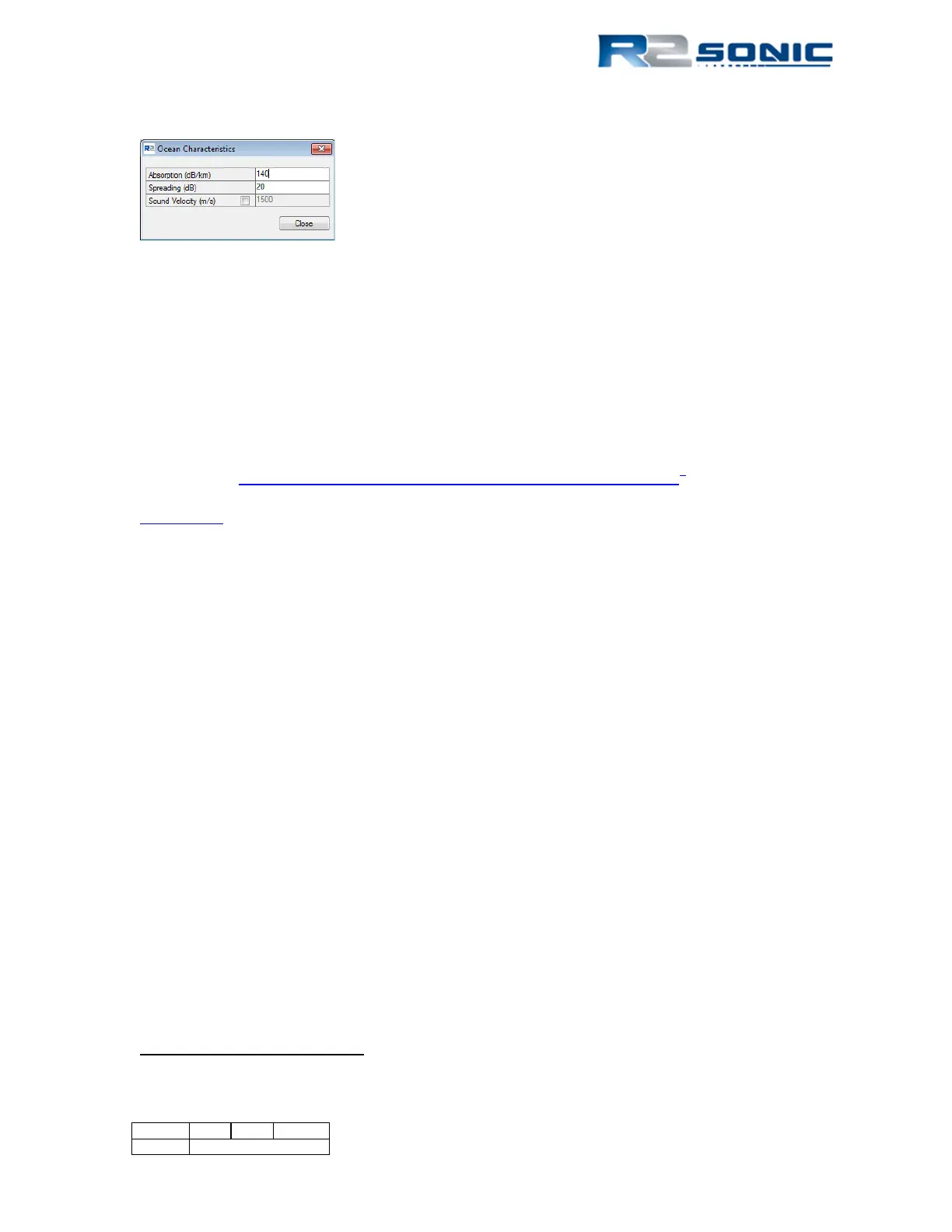5.6 Ocean Setting
Figure 60: Ocean Characteristics
Ocean Characteristics include Absorption and Spreading loss, which are the main components of the
Time Variable Gain (TVG) computation, and manual Sound Velocity (for receive beam steering).
5.6.1 Absorption: 0 – 200 dB/km
Absorption is influenced primarily by frequency and the chemical compounds of boric acid B(OH)
3
and magnesium sulphate MgSO
4
.
It is highly recommended that the local absorption value be entered. If this is not known, a good on-
line source is: http://resource.npl.co.uk/acoustics/techguides/seaabsorption/
2
Appendix VI provides a table of absorption values based on operating frequency.
5.6.2 Spreading Loss: 0 – 60 dB
Spreading loss is the loss of intensity of a sound wave, due to dispersion of the wave front. It is a
geometrical phenomenon and is independent of frequency. The sound wave propagates in a
spherical manner, the area of the wave front increases as the square of the distance from the
source. Therefore, the sound intensity decreases with the square of the distance from the
projector. Spreading loss is not dependent on frequency.
Spreading loss is not a setting that normally needs to be changed except when surveying in deeper
depths. As spreading loss is not dependent on frequency, the setting is unaffected by a change in
operating frequency. A general default value of 20 – 30 is normally sufficient for most survey
conditions. However, the value should be increased when surveying into deeper depths (>100
metres)
NB. In very shallow water (2m or less) it may be more advantageous to use Fixed Gain. To put the
system into Fixed Gain enter zero (0) for both Spreading Loss and Absorption.
For more detailed information on absorption and spreading loss, please refer to Appendix VI Basic
Acoustic Theory.
2
Linked with the kind permission of the National Physical Laboratory; Teddington, United Kingdom TW11
0LW; NPL reserves the right to amend, edit or remove the linked web page at any time.
Page 61 of 210
Version 5.0 Rev r002
Date 05-08-2014
